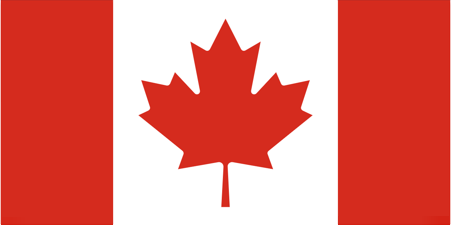Financial Planning for Seniors: How to Manage Retirement Savings and Expenses
Retirement is when you can make the most of your efforts throughout your career. This is also when you can truly enjoy life without the pressure of work. You can cherish this time by pursuing hobbies and spending time with family as well.
The peace of mind that comes with financial peace related to retirement is attached to careful management of savings and their planning. You must also keep your expenses under control.
The right strategies will push you toward ensuring the safety of your financial resources that last you throughout your golden years. This article is your comprehensive guide to knowing how to manage retirement savings and expenses.
Life Assure Product Quiz
Find The Perfect Medical Alert Device
Take our 30 second quiz and discover
which Life Assure medical alert device
is the right fit for you or a loved one.
Life Assure Product Quiz
Find The Perfect Medical Alert Device
Take our 30 second quiz and discover
which Life Assure medical alert device
is the right fit for you or a loved one.
Understanding Your Retirement Savings
Retirement savings make the basis for your cherished activities and a stable life when you are no longer part of the workforce. To manage these savings well, you need to know how much you have and how to use it properly.
Setting Financial Goals For Retirement

You should begin with clear financial goals. Here are 3 questions that will kickstart your dive into financial planning for seniors:
What kind of a life do I see for myself after retirement?
Do I want to travel more or do I wish to pursue hobbies?
How many of my expenses are/ will be related to healthcare needs?
Finding answers to these questions helps you get a clearer picture of your retirement finances. Make short-term to long-term priorities related to the money you have.
For example, spending some of your funds on healthcare needs at the moment is more important than taking some out to travel for later.
Prioritizing Essential vs. Discretionary Expenses
Your expenses are not all the same. Start by categorizing your spending into essential and discretionary areas. The former includes the things that sustain your living, like your house, food, and healthcare.
The latter are expenses that you can cut out on sometimes and can only fulfill once the essential ones are fully met, like eating out or leisure activities. By knowing the difference, you can always make informed decisions.
Planning For Long-Term Care
You shall not lose sight of long-term planning. As you grow old, you may need assistance with daily activities. This includes home care and assisted living, along with nursing facilities.
You should always be financially prepared for these scenarios. It is wise to invest in long-term care insurance, health savings accounts, or just putting some funds aside for urgent medical needs.
Allocating Funds
Lastly, keep your funds allocated strategically. This means having some part of your savings easily accessible for emergency situations and when you need to get something urgently. Other parts of the funds can go into growth-oriented accounts to protect against inflation.
Creating A Retirement Budget
A retirement budget can be the foundation of your financial well-being. You get clarity on your income and expenses through it. After that, you can be in touch with your spending habits better.
Analyzing Monthly And Annual Expenses
First, list each expense that you have. This includes necessities like groceries and utilities. Annual payments like property taxes and insurance premiums are also included in these lists. You must also distinguish whether these expenses are fixed or variable over time.
●Evaluate subscriptions: Cancel any subscriptions or memberships that are mooching off of your bank account even when you do not use them. This includes that dormant Netflix account and old gym memberships.
●Shop smart: Make shopping a smart and non-taxing experience. Use coupons and buy more during the discount season. Using generic brands that do not compromise on quality for household needs is also great.
●Energy efficiency: Perform energy-saving activities around the house to ensure your utility bills remain low.
●Travel strategically: There are senior discounts you can avail of while traveling in off-peak seasons, which helps a lot if you plan to travel.
Adjusting Your Budget

Flexibility is the way toward a good retirement budget. Review your finances often to keep an eye on unexpected expenses and shifts in priorities. For example, a sudden need for extra groceries or medical costs may arise, which will need fund reallocation.
Managing Investments During Retirement
Reducing financial risks is also a part of retirement financial plans. Investments help you plan your funds much better. They can bring in some extra income so your savings are immune to inflation.
Diversifying Portfolio
Diversification is when you spread your investments across various asset classes. This includes stocks, bonds, and mutual funds. A well-diversified portfolio helps you grow safely as a retiree.
Determining A Safe Withdrawal Rate
Withdrawing your funds safely over time ensures your savings last throughout retirement. Usually, one might follow the 4% rule, but it all depends on the age and economic conditions when you make an adjustment. You can seek help from a financial advisor to get a personalized withdrawal strategy that meets your needs.
Understanding Risks Of the Market
Market volatility is a big influence on your retirement savings. Sticking to conservative investment approaches is the best for seniors. They need to invest in bonds and dividend-paying stocks.
Strategies To Stretch Retirement Savings
To ensure your retirement savings work for you for much longer, you need to extend the lifespan of your retirement savings.
Downsizing Home
Your house brings you more expenses than you think. It is better to move to a smaller and more affordable home instead. Moreover, selling your larger home can help you get a new one easily while also giving you some extra funds.
Leveraging Senior Benefits
Seniors benefits are great. They include discounts on utilities and transportation. You can even save more on recreational activities. Medicare and Social Security also provide valuable support. You can look into local and federal initiatives for more saving opportunities.
Considering Freelance Opportunities
Retirement is not technically an end to all your earnings. A lot of retirees find fulfillment in pursuing freelance or part-time work. You can find flexible and comfortable openings in consulting and teaching. People often open hobby-based businesses after retirement as well.
Conclusion
Financial planning for seniors does not just mean managing savings. It is also about ensuring a fulfilling retirement experience. You can do this by understanding retirement savings and moving toward realistic budgeting goals.











 Get Help With The Push Of
A Button
Get Help With The Push Of
A Button
















